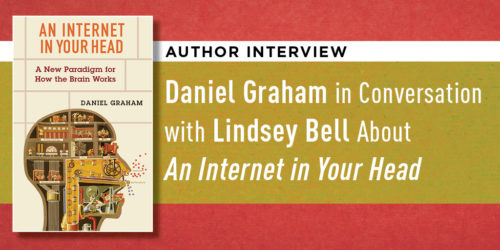William Egginton — Can Neuroscience Challenge Roe V. Wade?
“When science becomes the sole or even primary arbiter of such basic notions as personhood, it ceases to be mankind’s most useful servant and threatens, instead, to become its dictator.”—William Egginton
 Due to Hurricane Sandy, we fell a bit behind with our blog posts, but we wanted to share with you a provocative and thoughtful essay by William Egginton, author of In Defense of Religious Moderation.
Due to Hurricane Sandy, we fell a bit behind with our blog posts, but we wanted to share with you a provocative and thoughtful essay by William Egginton, author of In Defense of Religious Moderation.
In Can Neuroscience Challenge Roe V. Wade?, a post on the New York Times Opinionator blog, William Egginton describes being called as an expert witness in an appellate case that some think could lead to the next Supreme Court test of Roe v. Wade.
More precisely, Egginton was asked to testify regarding the “Pain-Capable Unborn Child Protection Act” an Idaho statute that cites neuroscientific findings of pain sentience on the part of fetuses as a basis for prohibiting abortions even prior to viability. Though a humanities scholar and not a neuroscientist, Egginton was recognized as someone who has written about the hubris of scientific claims to knowledge that exceeds the boundaries of what the sciences in fact demonstrate.
As Egginton describes, he finds the recent laws and push to use neuroscientific findings to limit the choice of women, endorsed by Mitt Romney and other Republicans, fail to appreciate scientific and philosophical traditions regarding whether recognizing pain can be equated with personhood. Egginton writes:
For a fetus to be conscious in a sense that would establish it as a fully actualized human life, according both to current neuroscientific standards and to the philosophical tradition from which the concept stems, it would have to be capable of self-perception as well as simple perception of stimuli. And as philosophers of many stripes since Descartes have argued, self-perception is a reflexive state involving a concept of self in contrast with that of others — concepts it would be hard to imagine being meaningful for a fetus, even if fetuses could be shown to have access to concepts in the first place. By turning to consciousness in an attempt to push Roe’s line-in-the-sand back toward conception, in other words, abortion opponents would in effect be pushing it forward, toward the sort of self-differentiation that only occurs well after birth and the emergence of what the phenomenological tradition has called “world.”
Egginton concludes the essay by speculating on the limits of science in shaping the way we decide social and constitutional issues:
The brain sciences, like all branches of the natural sciences, are immeasurably useful tools for individuals and communities to deploy (one hopes) for the improvement of our understanding of the natural world and the betterment of society. The basic rights guaranteed by the Constitution, however, have nothing at all to do with the truths of science. They are, to use Karl Popper’s terminology, nonfalsifiable, like religious beliefs or statements about the immortality of the soul; to use Thomas Jefferson’s word, they are inalienable. Like the equality of its citizens, in other words, the basic liberties of Americans should not be dependent on the changing opinions of science.
When science becomes the sole or even primary arbiter of such basic notions as personhood, it ceases to be mankind’s most useful servant and threatens, instead, to become its dictator. Science does not and should not have the power to absolve individuals and communities of the responsibility to choose. This emphatically does not mean that science should be left out of such personal and political debates. The more we know about the world the better positioned we are to make the best possible choices. But when science is used to replace thinking instead of complement it; when we claim to see in its results the reduction of all the complexity that constitutes the emergence of a human life or the choices and responsibilities of the person it may develop into; we relinquish something that Kant showed more than 200 years ago was essential to the very idea of a human being: our freedom.
1 Response
Leave a Reply
You must be logged in to post a comment.






Very nice post. I just stumbled upon your blog and wished to say that I have really enjoyed surfing around your weblog posts. After all I’ll be subscribing in your feed and I hope you write again very soon!